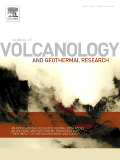
JOURNAL OF VOLCANOLOGY AND GEOTHERMAL RESEARCH
metrics 2024
Pioneering Research in Geophysical Phenomena
Introduction
Welcome to the Journal of Volcanology and Geothermal Research, a premier publication dedicated to advancing the understanding of volcanic and geothermal processes. Published by Elsevier in the Netherlands, this esteemed journal holds a distinguished Q1 ranking in both Geochemistry and Petrology and Geophysics, reflecting its influential contribution to the field. Since its inception in 1976, the journal has served as a critical platform for high-quality research, disseminating cutting-edge findings that shape the discourse surrounding Earth sciences. With an impressive Scopus ranking—27th in Geophysics and 43rd in Geochemistry and Petrology—scholars and practitioners alike regard it as an essential resource for staying informed on the latest research trends. Although it does not provide open access options, the journal remains committed to enriching the academic community's understanding of geothermal energy, volcanic hazards, and related geophysical phenomena, making it a must-read for anyone invested in these dynamic fields.
Metrics 2024
 1.02
1.02 2.40
2.40 2.60
2.60 139
139Metrics History
Rank 2024
Scopus
IF (Web Of Science)
JCI (Web Of Science)
Quartile History
Similar Journals
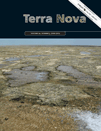
TERRA NOVA
Leading the Way in Earth and Planetary ScienceTERRA NOVA, published by WILEY, is a leading journal in the field of Geology, with a remarkable impact within the academic community. With the ISSN 0954-4879 and E-ISSN 1365-3121, the journal has been a pivotal platform for innovative research since its inception in 1989 and will continue its influence through to 2024. Ranked in the top tier (Q1) of its category for 2023, TERRA NOVA holds an esteemed position with a Scopus ranking of 67 out of 321 in Earth and Planetary Sciences, showcasing its dedication to high-quality, impactful scientific discourse. The journal covers a diverse range of topics within geology, providing valuable insights for environmental scientists, geologists, and industry professionals. By fostering an interdisciplinary approach, TERRA NOVA remains committed to advancing the understanding of geological processes and their implications for society. With a dedicated readership of researchers, professionals, and students, this journal is essential for those looking to stay abreast of the latest developments and trends in the field.

International Journal of Geophysics
Connecting Researchers Worldwide in Geophysical DiscoveriesInternational Journal of Geophysics, published by HINDAWI LTD, represents a significant platform in the field of geophysical research and water science. Established as an Open Access journal in 2009, it has committed itself to disseminating groundbreaking studies and innovations that enhance the scientific understanding of the Earth’s physical properties and water dynamics. With a presence in Egypt, this journal maintains a global appeal, supported by its inclusion in prestigious indices, achieving a Q3 ranking in Geophysics and Water Science and Technology as of 2023. Although the H-Index is currently not listed, the journal showcases a reputable ranking in Scopus, placing it in the 34th percentile for Earth and Planetary Sciences and the 26th percentile in Environmental Science. The journal's scope covers a broad range of interdisciplinary topics, making it an invaluable resource for researchers, professionals, and students aiming to stay at the forefront of geophysical advancements and sustainable water resource management. By offering open access to its content, the International Journal of Geophysics ensures that critical research is accessible to a wide audience, fostering collaboration and innovation across global scientific communities.
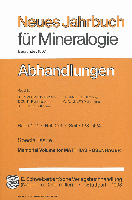
NEUES JAHRBUCH FUR MINERALOGIE-ABHANDLUNGEN
Advancing knowledge in mineralogy and petrology.NEUES JAHRBUCH FUR MINERALOGIE-ABHANDLUNGEN, published by E Schweizerbart'sche Verlagsbuchhandlung in Germany, is a distinguished scholarly journal dedicated to advancing the fields of mineralogy and petrology. With an ISSN of 0077-7757, it provides a platform for researchers to disseminate high-quality findings that contribute to our understanding of Earth sciences. Although it currently has no open access options, the journal remains vital for professionals seeking to engage with impactful research in geochemistry and petrology, as reflected in its 2023 Scopus ranking in the 21st percentile within its category. The journal has documented significant research from 1980 to 1988 and resumed from 1996 to 2023, making it a crucial archive for historical and contemporary studies. Despite its current Q4 quartile ranking, NEUES JAHRBUCH FUR MINERALOGIE-ABHANDLUNGEN is an important contributor to the academic discourse in its field, and it invites researchers, professionals, and students alike to explore and submit their work that drives innovation and understanding in mineralogical studies.
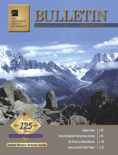
GEOLOGICAL SOCIETY OF AMERICA BULLETIN
Exploring the Depths of Earth's MysteriesThe Geological Society of America Bulletin (GSA Bulletin), with ISSN 0016-7606 and E-ISSN 1943-2674, is a premier scholarly journal published by Geological Society of America, Inc. Based in the United States, this journal has been a cornerstone of geological research since its inception in 1890, making significant contributions to the understanding of Earth sciences over more than a century. Recognized for its rigorous peer-review process, the GSA Bulletin currently holds a prestigious Q1 ranking in Geology, positioning it among the top 14 journals in Earth and Planetary Sciences in terms of Scopus ranking, reflecting the high quality and impact of the research it publishes. Researchers, professionals, and students alike benefit from its comprehensive coverage of geological topics, including sedimentology, volcanology, and paleontology, which supports the advancement of knowledge in the geosciences. While the journal is not open access, it continues to provide a vital platform for innovative research and critical discussions that shape the future of geology.
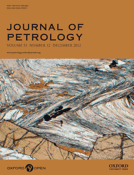
JOURNAL OF PETROLOGY
Unveiling Earth's Secrets through Cutting-edge ResearchJOURNAL OF PETROLOGY is a prestigious academic journal published by Oxford University Press, dedicated to the fields of geochemistry, petrology, and geophysics. Established in 1960, it has garnered significant recognition within the scientific community, currently holding an impressive Q1 ranking in both Geochemistry and Petrology as well as Geophysics, as of 2023. The journal is indexed in Scopus, ranking 20th out of 165 in Geophysics and 31st out of 154 in Geochemistry and Petrology, reflecting its high impact and contribution to Earth and Planetary Sciences. Designed for researchers, professionals, and students, the journal publishes cutting-edge research and reviews that advance our understanding of igneous and metamorphic processes, mineralogy, and the Earth's structure. With a commitment to rigor and scientific excellence, JOURNAL OF PETROLOGY serves as a vital resource for developing new concepts and methodologies in the study of Earth’s materials and processes.
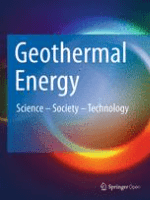
Geothermal Energy
Transforming energy landscapes with groundbreaking geothermal studies.Geothermal Energy, an esteemed journal published by SPRINGER, stands at the forefront of research in the fields of Economic Geology, Geotechnical Engineering, and Renewable Energy. With an impressive impact factor and a Q2 category ranking in multiple fields as of 2023, it signifies high-quality research and dissemination in its domain. As an Open Access journal since 2013, Geothermal Energy fosters a broad dissemination of knowledge, ensuring that groundbreaking studies are easily accessible to researchers, industry professionals, and students worldwide. The journal aims to address pressing challenges related to geothermal resources, focusing on innovative methodologies, sustainability practices, and emerging technologies from 2013 to 2024. With its dedicated focus on advancing geothermal energy initiatives, it plays a vital role in contributing to the dialogue on renewable energy solutions and environmental sustainability. Nestled in the United States, this journal not only pushes the boundaries of scientific inquiry but also strengthens the global discourse on energy and the environment.

Geofisica Internacional
Pioneering Insights in Geophysics and Energy StudiesGeofisica Internacional, an esteemed academic journal published by the Instituto de Geofísica at UNAM, Mexico's prestigious National Autonomous University, has been a pivotal platform for advancing the field of geophysics and energy studies since its inception in 1975. This Open Access journal aims to disseminate high-quality research findings, making significant contributions to our understanding of Earth's processes and energy resources. With a current impact factor that situates it in the Q3 category for both Energy (miscellaneous) and Geophysics, it provides a continuous dialogue for researchers, professionals, and students interested in the intersection of these critical areas. Based in Mexico City and publishing articles that span various geophysical disciplines, Geofisica Internacional is indispensable for anyone seeking to stay at the forefront of environmental and energy research.

Applied Geophysics
Transforming Geophysical Knowledge into Practical SolutionsApplied Geophysics is a premier journal dedicated to the interdisciplinary study of geophysical processes and their applications across various domains, published by SPRINGER. With an ISSN of 1672-7975 and an E-ISSN of 1993-0658, this journal serves as a pivotal platform for researchers, professionals, and students to share their latest findings and insights in the field of geophysics. Operating from China, the journal has established itself within the Q3 quartile in Geophysics as of 2023, reflecting its commitment to high-quality research, even as it ranks #105 out of 165 in the Earth and Planetary Sciences category, placing it in the 36th percentile on Scopus rankings. This makes it an essential resource for advancing knowledge in geophysical methodologies and applications. While it operates in a traditional subscription model, its relevance and timeliness ensure it remains a crucial outlet for emerging scientific discussions. The journal particularly encourages the integration of practical applications with theoretical frameworks, fostering innovation in areas such as environmental geophysics, resource exploration, and hazard assessment.
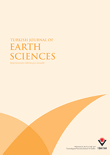
TURKISH JOURNAL OF EARTH SCIENCES
Exploring the Depths of Planetary KnowledgeTURKISH JOURNAL OF EARTH SCIENCES, published by the Tubitak Scientific & Technological Research Council Turkey, is a premier platform dedicated to advancing the field of Earth and Planetary Sciences. With an ISSN of 1300-0985, this journal has been a significant contributor to the international scientific community since its inception in 2002, and is set to continue publishing groundbreaking research through 2024. As a recognized journal in the Q2 quartile of Earth and Planetary Sciences, it ranks #98 out of 195 in its category according to Scopus metrics, positioning it within the 50th percentile of its field. The journal emphasizes peer-reviewed research, providing invaluable insights that facilitate scholarly discourse and promote rigorous investigation into various aspects of the Earth sciences. Although it does not currently offer open access, the journal remains a vital resource for academics, professionals, and students seeking to deepen their understanding of geological phenomena and contribute to the advancement of this essential discipline.

Andean Geology
Bridging Knowledge Gaps in Geochemistry and PetrologyAndean Geology is a prominent open-access journal, published by the SERVICIO NACIONAL GEOLOGIA MINERVA in Chile, dedicated to advancing the fields of geology, geochemistry, petrology, paleontology, and stratigraphy. Since its inception in 2009, the journal has provided a vital platform for the dissemination of research pertaining to the Andean region and beyond, featuring high-quality articles that contribute to our understanding of earth sciences. With an impressive ranking in the Q2 and Q3 quartiles across multiple categories, it reflects a growing impact in the geological community, evidenced by its status within Scopus rankings. Andean Geology not only supports the academic pursuit of knowledge with its open-access policy but also aims to foster collaboration among researchers and professionals worldwide, ensuring wide accessibility of groundbreaking research and promoting academic engagement. By covering a diverse array of topics relevant to the dynamic field of geology, this journal serves as an essential resource for students, professionals, and scholars dedicated to earth and planetary sciences.